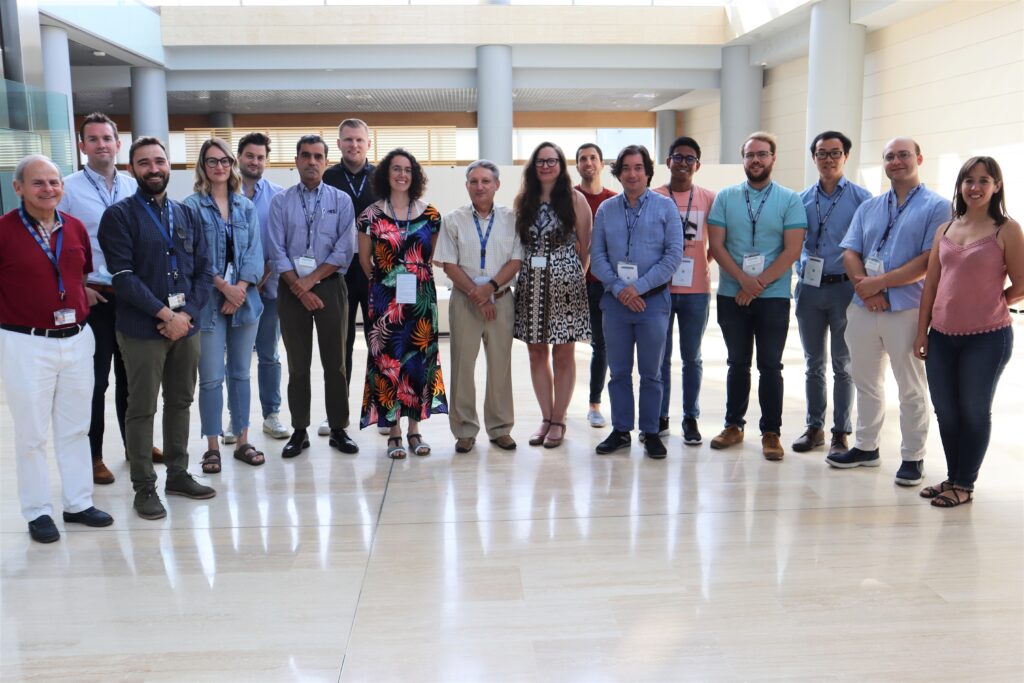- The BIOMET4D project aims to create a new generation of biodegradable implants capable of shape change and load-bearing for dynamic tissue restoration to provide improved health outcomes in the treatment of craniosynostosis and skin expansion procedures.
- IMDEA Materials Institute leads a highly interdisciplinary European consortium of 7 members including the Technical University of Madrid (UPM), the Biomedical Research Foundation of Gregorio Marañón Hospital (FIBHGM), the National University of Ireland Galway, the University Hospital of Cologne (UCC), German medical technology manufacturer Meotec (MEO) and Belgian powder coating systems manufacturer AEROSINT.
The Madrid Institute for Advanced Studies in Materials, IMDEA Materials, recently played host to the EIC-funded BIOMET4D project launch.
The aim of BIOMET4D (Project No 101047008), which falls under the umbrella of the European Union’s Horizon Europe programme, is to develop innovative technology which will dynamically regenerate entire tissues, to be demonstrated through proof-of-concept trials for the treatment of craniosynostosis and skin expansion.
Both treatments will be radically improved through the use of an implant that can be placed using less invasive procedures, that undergoes pre-designed shape changes to adapt to varying requirements, and that promotes complete tissue regeneration while completely degrading but maintaining proper mechanical behaviour throughout the process. This is the radically new treatment concept envisioned by BIOMET4D.

This long-term vision can only be achieved through an interdisciplinary approach and is likely to have a high social and economic impact and provide a new line of research for applications of smart materials in medicine and engineering.
In order to achieve these goals, the project has four concrete objectives: the development of new shape-morphing materials, the synthesis of 4D smart metallic actuators, the development and implementation of advanced multidomain optimization tools and the realization of proofs-of-concept for two clinical applications.
From a technological point of view, this project also goes beyond existing paradigms due to the step-by-step actuation mechanisms enabled through the additive manufacturing of multi-material degradable metallic structures, aiming at an order of magnitude improvement compared to currently available technology.
Craniosynostosis is a birth defect in which the bones of a baby´s skull join together too early, before the baby´s brain is fully formed and affects approximately one in every 2,200 births. As the baby´s brain grows, the skull can become misshapen and often requires invasive reconstructive surgeries.
Skin expansion is a medical procedure that enables the body to grow extra skin for use in reconstructing almost any part of the body and is most commonly used to repair skin damaged by birth defects, accidents, surgery and in certain cosmetic procedures. Such reconstructive surgeries usually require multiple, often complex procedures, with high social and economic costs.
The project will be coordinated by IMDEA Materials Institute, while preclinical trials will be undertaken at Gregorio Marañón Hospital and the University Hospital of Cologne in Germany.
“This project has received funding from the EIC Pathfinder under grant agreement No 101047008. Views and opinions expressed are however those of the author(s) only and do not necessarily reflect those of the European Union or the European Innovation Council and SMEs Executive Agency (EISMEA). Neither the European Union nor the EISMEA can be held responsible for them.”

